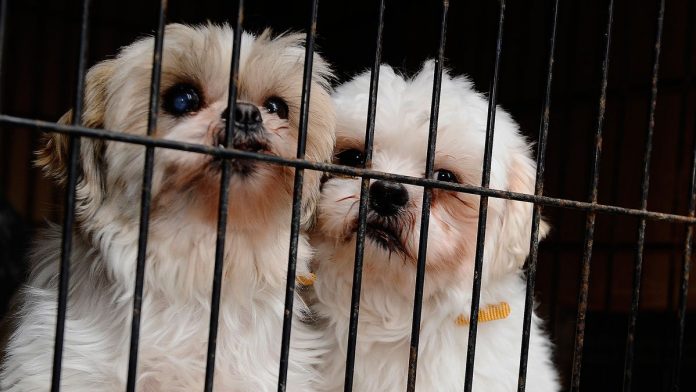Have you ever walked past a pet shop, seen all the cute little puppies staring at you through the window and wandered where the seemingly constant supply of these pets come from? Well, the chances are they are ‘products’ of Puppy Mills. But what are Puppy Mills exactly?
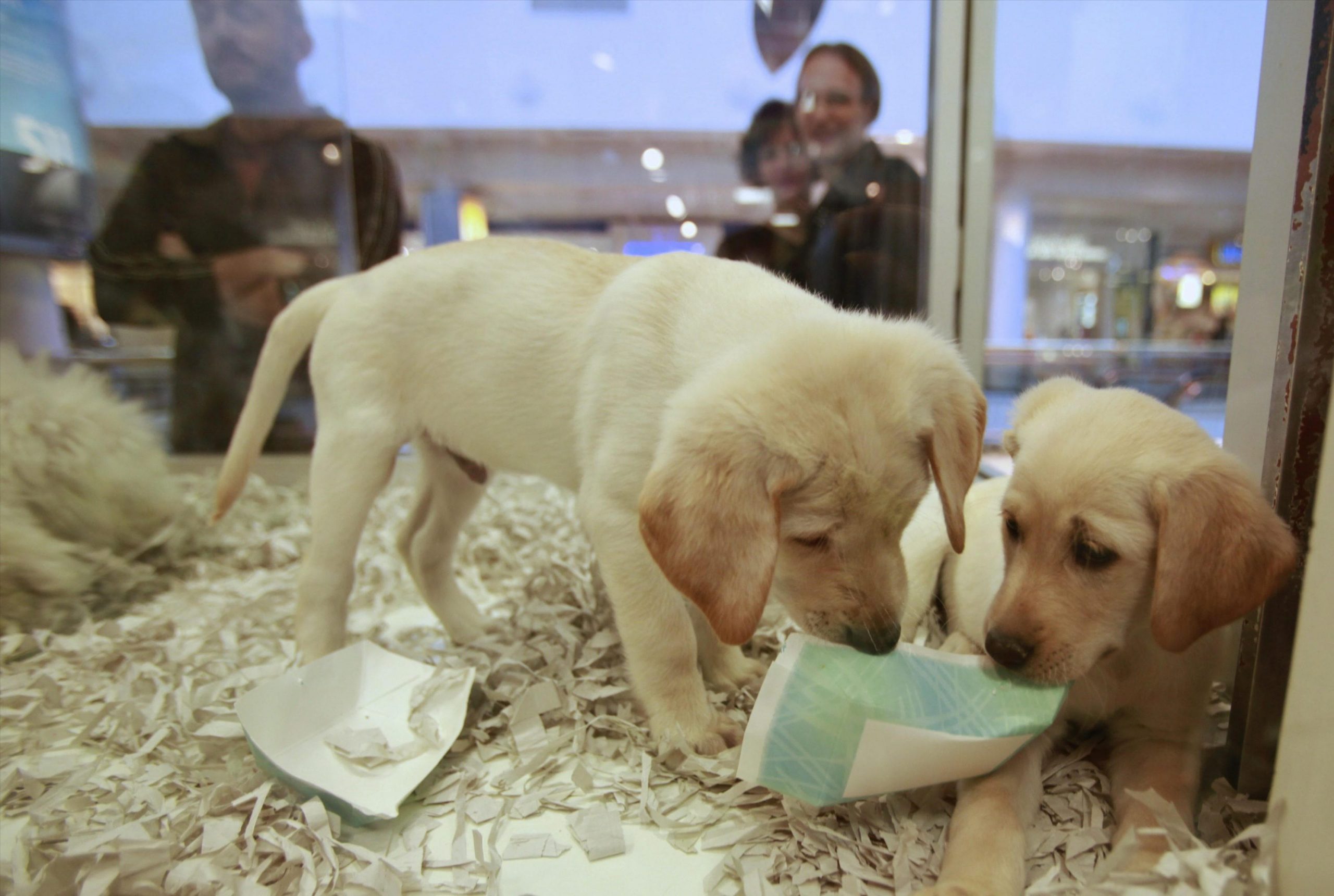
Puppy Mills are similar to live factory farming, with dogs constantly bred for the sole purpose of profiteering; sold to pet shops, over the internet and overseas markets. While they are legal in many countries including Australia and America, this does not mean that they are ethical or moral.
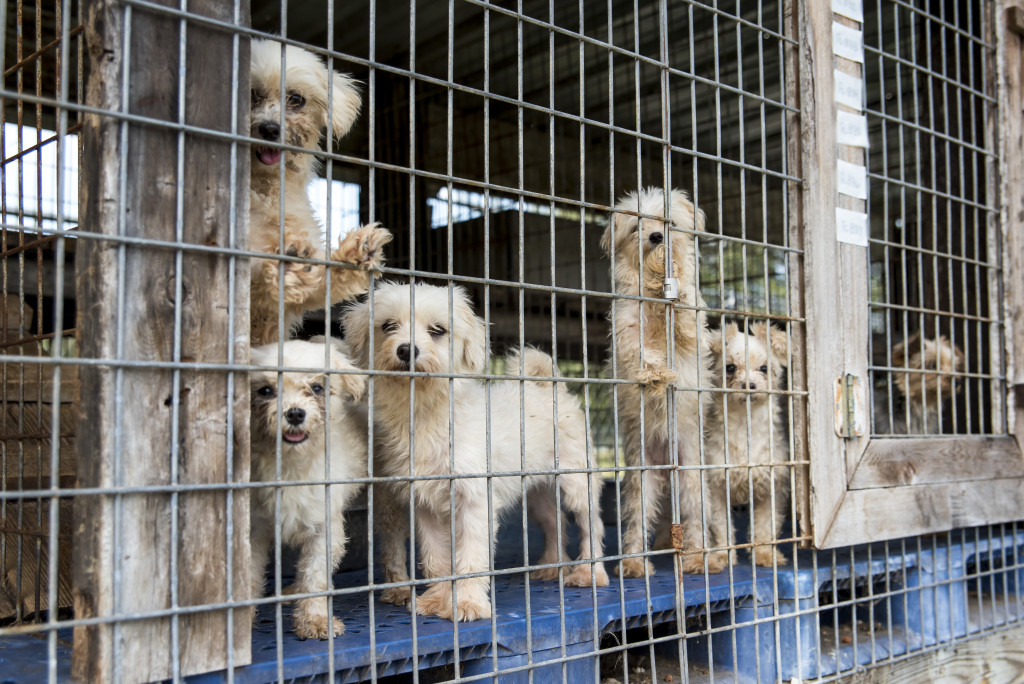
The reason for this is that because only minimum standards of care are required by law, Puppy Mills will only provide the minimum care required (such as basic food and water and standing room), to ensure the well-being (both mentally and physically) of the mother dog and her pups.
According to the Royal Society for the Protection of Cruelty to Animals (RSPCA), in Australia, the primary problems related to Puppy Mills include:
- over-breeding;
- in-breeding (allowing dogs to mate with close relatives);
- minimal or no veterinary care;
- poor hygiene and nutrition;
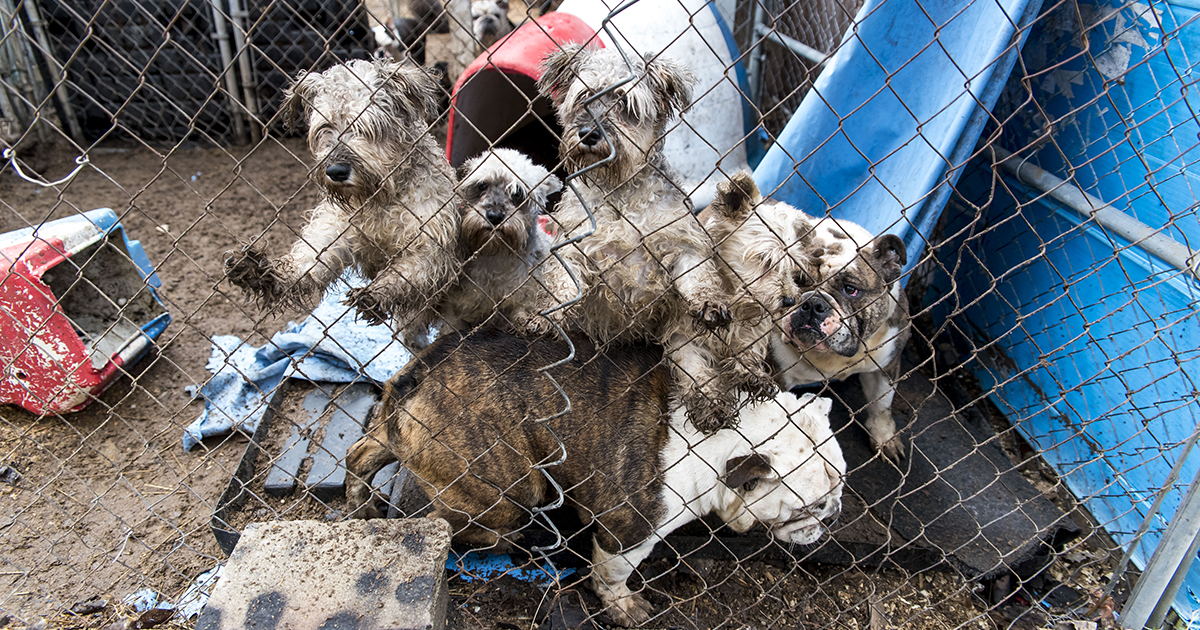
- inadequate housing and high mortality rates;
- animals that are to be bred are not allowed out of their pens (or cages), which means they receive no exercise, are unable to play with other dogs (therefore receiving no companionship or the ability to learn vital socialisation skills). Many puppies are removed from their mother at a very young age, which can cause adverse psychological developmental;

- puppies born in Puppy Mills often suffer from long-term health and behavioural problems due to the conditions in which they are bred;
- parent dogs also suffer from health problems, which in turn can be passed on to their puppies. These dogs are kept in cages most of their lives, with no chance of real happiness.
Ways to stop Puppy Mills
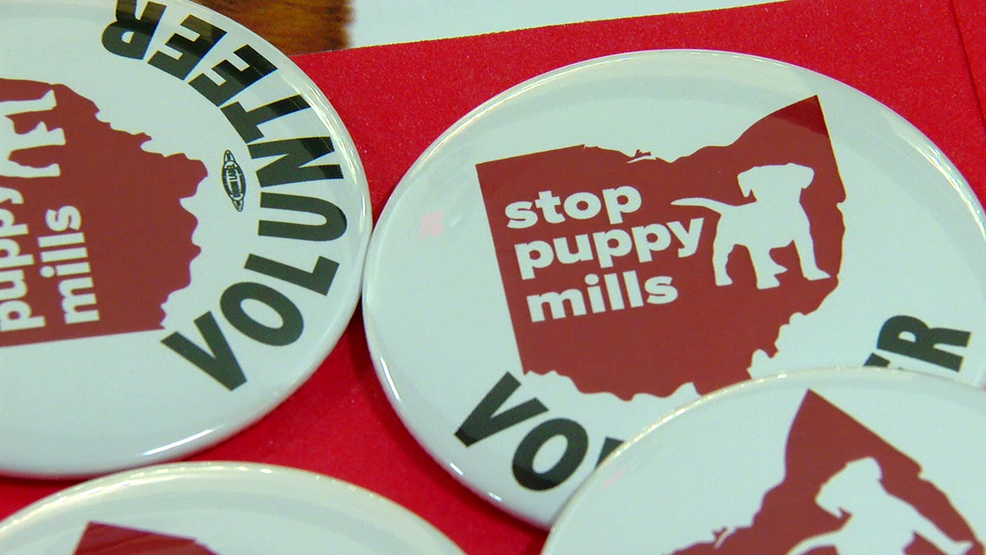
- Never purchase puppies and kittens from a pet shop, and do not purchase products from pet shops that sell live pets;
- Adopt a pet from a pet shelter or rescue organization, such as the RSPCA and Animal Welfare League in Australia. Other countries have their own rescue organizations;
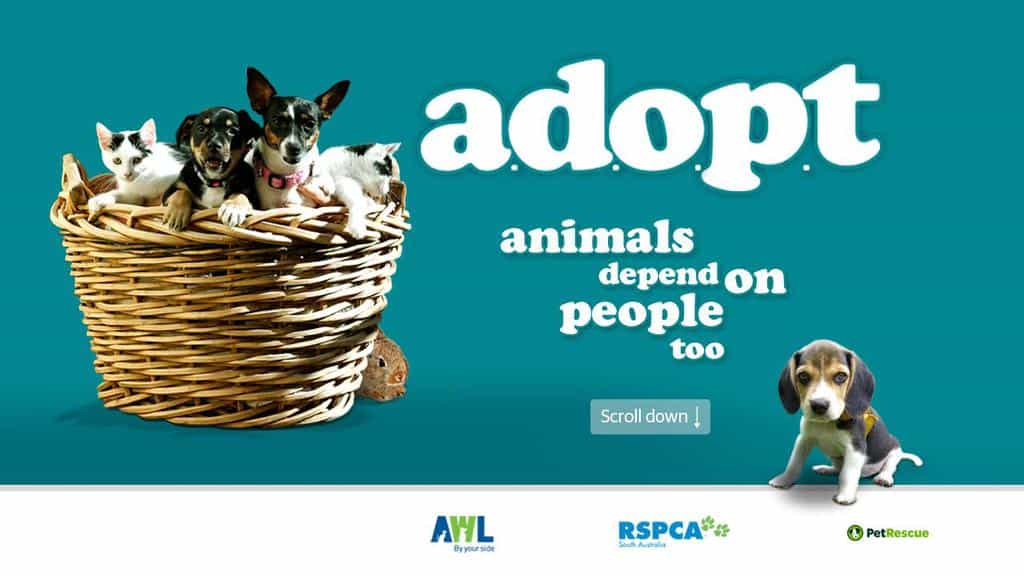
3. As shelters and rescues are often not-for-profit organizations, all the money that they receive goes directly into caring for pets (food, water, worming, de-sexing and so on), along with attempting to re-home pets. When-ever possible, assist rescues by donating money, old blankets and food; both the pets and the shelter/rescue will be forever grateful. In addition, shelters/rescues are always seeking volunteer dog walkers and cat ‘cuddlers’, assistance in preparing food and washing of feed bowls and blankets;

4. If someone you know is planning on adopting a pet, ensure you direct them to the rescues – and explain why they should not purchase a pet from a pet shop;
5. Never purchase a puppy (or any pet) on impulse or as a present. Many people see the cute little bundles of fur in the pet shop window and impulsively take one home without thinking of the consequences, such as the time, money, patience and commitment required to care for a pet. It is these pets that are often abandoned, abused or surrendered to shelters/ rescues.

Please remember that adopting a puppy (or other animal) requires commitment, patience and time. Many dogs can live past 14 years of age; during this time, they will require de-sexing (if purchasing from a rescue within Australia, this will be done prior to adoption), worming, flea treatment and veterinary care, along with healthy nutrition, clean water and exercise. Prior to adopting or purchasing a puppy, it is important for potential guardians to consider these basic needs.


